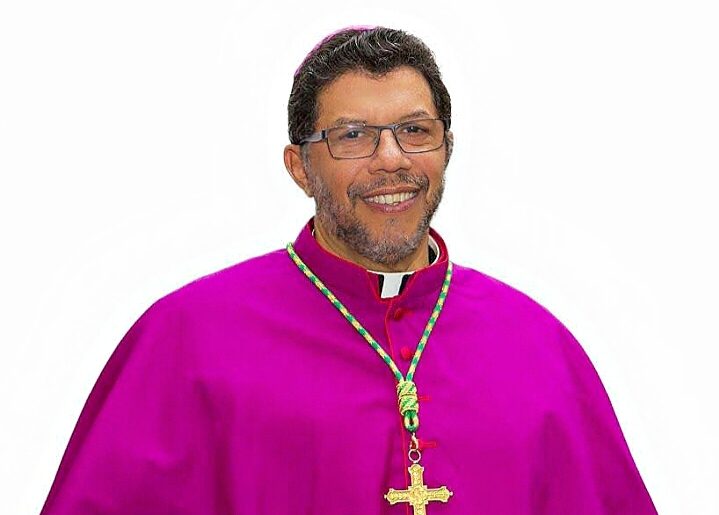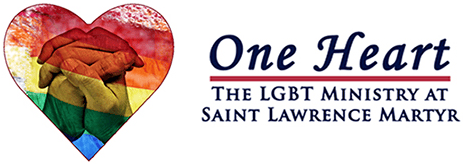A person recently told me that they were gay and Catholic and wondered what they were supposed to be doing. Maybe someone is reading this and they, too, are gay, Catholic and unsure of how to proceed.
Well, I’ll tell you what I told them. I want for you what I want for every Catholic: I want you to be holy.
The first thing you need to know—and I want to stress this first, both in terms of importance and priority—is that you are a child of God, created in Christ Jesus for God’s own purpose (Eph. 2:10).
The first thing you need to know—and I want to stress this first, both in terms of importance and priority—is that you are a child of God.
God loves you more than you will ever know, and this loving God has a plan for your life. I can imagine, in the midst of all your feelings and anxiety, that it may be difficult to believe this. But I want to stress again: God loves you and He is with you. I’ve seen this expressed on an old bumper sticker: “Be patient, God is not finished with me yet.”
You need to grow a very deep relationship with God. The storms of this world will wreak havoc on you if you do not have a solid foundation in Christ. The inner storms of your feelings, desires and longing to belong, together with the outer storms of relativism and a culture of permissiveness, may feel like they are being imposed on you. To discern clearly and make wise choices, you need to be rooted in Christ.
Become a missionary disciple
What do we do with these storms raging inside and out? Allow Jesus in. God made you, so his Son knows you and loves you. Enter into a deep relationship with him. How? Through a rhythm of prayer.
Not just times of prayer, but a routine you can rely on. Christian meditation, the Examen, Lectio Divina and the Rosary are all fruitful ways of praying. Anchor yourself in a living relationship with Christ. Go to the Blessed Sacrament and attend Mass regularly, receiving the Body of Christ.
Pope St. John Paul II wrote that in our restlessness “beats and pulsates what is most deeply human—the search for truth, the insatiable need for the good, hunger for freedom, nostalgia for the beautiful, and the voice of conscience” (“Redemptor Hominis,” 18).
Anchor yourself in a living relationship with Christ. Go to the Blessed Sacrament and attend Mass regularly, receiving the Body of Christ.
Set aside a time every day for study. Read broadly and widely. But also, read deeply. I want to invite you to think with the church. This means reading and following the Pope Francis, especially his teachings on sexuality and identity. You can easily find his teachings online.
Be generous! Not just with your money and talent and your time. Be generous with each of us who let you down when we do not live our Christianity or the high ideals that Christ has put before us.
Be generous with your peers who may not understand you fully or who may ridicule and judge you harshly. Remember that Jesus says: “Do not judge, lest you be judged” (Mt. 7:1). Above all, be generous to the poor, for in almsgiving we cover over a multitude of sins.
Become a missionary disciple. As you root yourself in Christ, call others to Christ to live their lives worthy of the vocation that we all received (Eph. 4:1). Bring all of yourself to Christ. Allow Christ to fill and use all of you for his Kingdom. A relationship with Christ does not seek to repress or give in solely to inner longings. Desires are important in our spiritual lives, but must be weighed in terms of our Christian beliefs. Christ will show you a different way than the world often presents. His is the path of freedom and true fulfillment.
Live a life of virtue
Everything God expects of every Catholic, He expects of you. Live a life of virtue. Sometimes, we act as if there is only one commandment—the Sixth. But God gave us Ten Commandments. Live them all! But above this, live the law of love (Mk. 12:30-31).
In seeking to live a life of virtue, you will discover the voice of your conscience. Pay close attention to it.
In seeking to live a life of virtue, you will discover the voice of your conscience. Pay close attention to it. Always do what is pleasing to God. Seek good, avoid evil. You have one primary identity: you are a child of God. Nothing should come before this.
You said to me you are gay. Yes, but remember first you are a child of God who experiences attraction to people of the same sex. Your core identity is in Christ and nothing should ever be put in that place.
You have attractions that are emotional and sexual all at once. Both are real. Like every person, you will need to understand, and consciously distinguish between, your emotional needs for companionship and friendship, and your sexual desires and fantasies.
We were created out of love and for love. We all need loving relationships where we are accepted unconditionally if we are to become the best version of ourselves. This need for love must be integrated with your sexual desires in a manner that is healthy and holy. Needs and desires are very different.
All persons are called to be chaste. You need to learn your body and how to sublimate these desires and direct them to the good. Our brains learn either virtue or vice. Whatever is repeated will become easier and easier to choose. Choose virtue—it leads to Christ! If you fall, ask for forgiveness, make a firm purpose of amendment, seek help and go to Confession.
Find a group and participate in it. You are part of our family.
Pornography is one of the great temptations today. For some people, both gay and straight, it can be like an addiction and cause you to lose perspective. Please do everything to avoid it. If you fall into it, or to lust of any kind, go to Confession as soon as you can. The Sacrament is a healing balm for your soul.
We were created male and female. This is God’s design. By God’s law, sex and sexual pleasure is for the context of marriage. Outside of marriage it is concupiscence, which is a distortion of God’s intention, and therefore, sinful.
There are Catholic groups that support gay persons in living their faith. They offer you a space for fellowship and a safe space to share. Find a group and participate in it. You are part of our family. We have a place for you. I pray for you; please pray for me.




